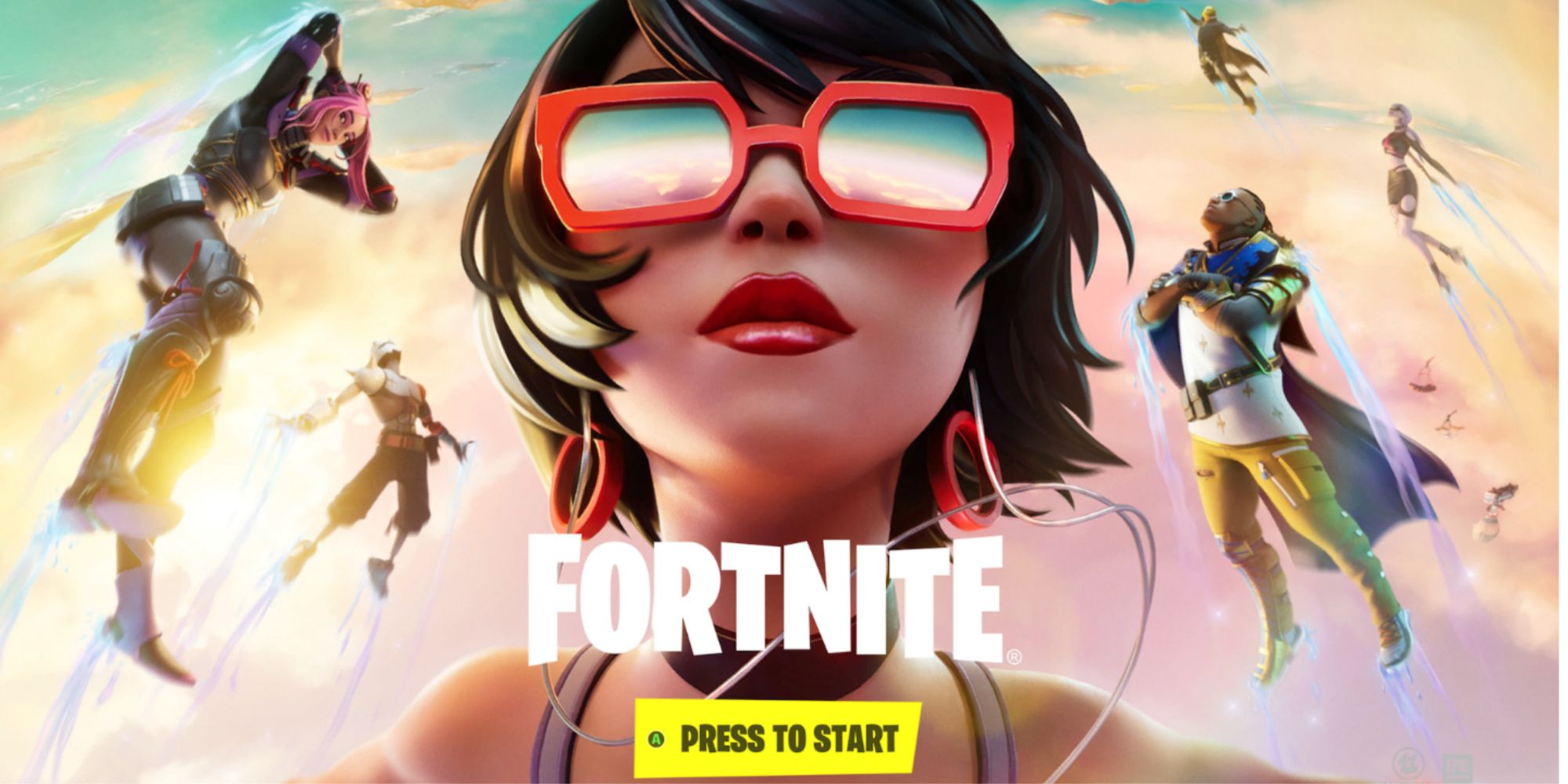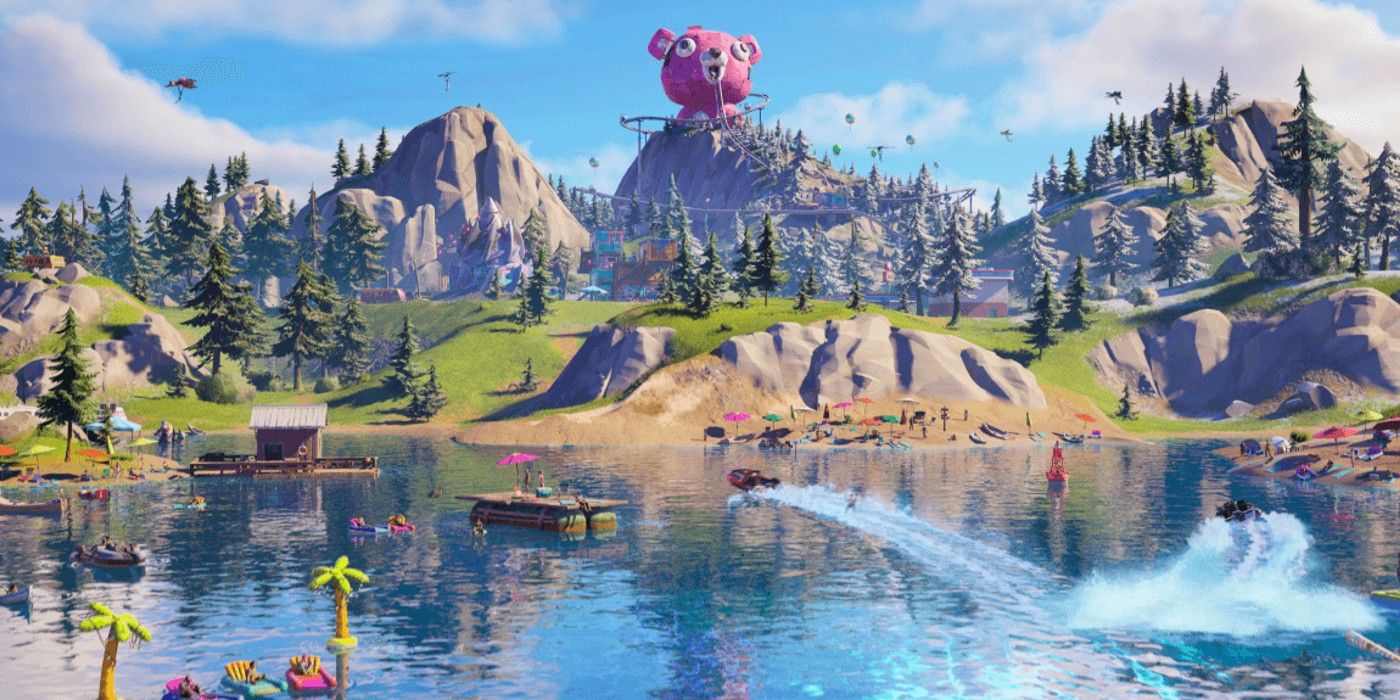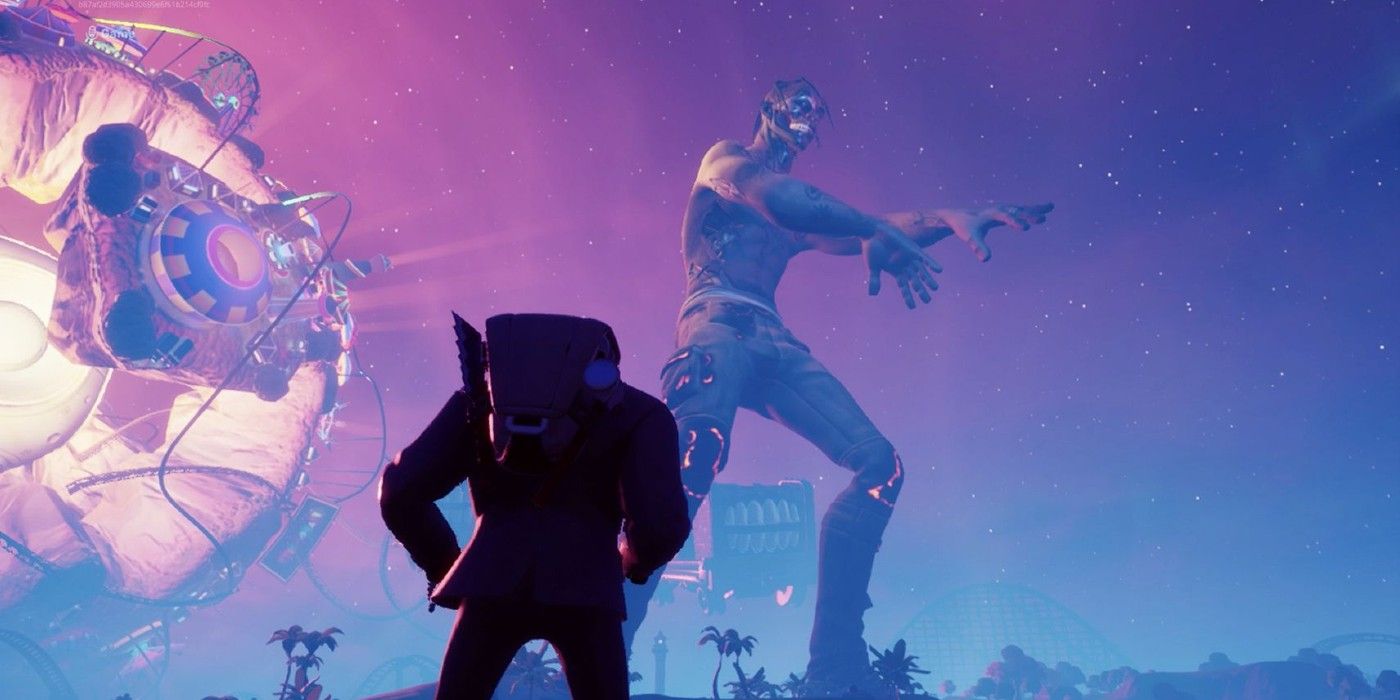The Greek philosopher Heraclitus famously said, "No man ever steps in the same river twice, for it's not the same river and he's not the same man." That's sort of how I feel about Fortnite.
This weekend, I started playing Epic Games’ battle royale again. Since the last time I played, Epic has added:
- The Daily Bugle, complete with massive web trampolines hanging from the mountains that surround the building
- Zero Build, a mode that allows me to play the game as the straight third-person shooter I always wanted it to be without having to worry about late game build-offs that I will always lose
- Rift-To-Go, a portable rip in the fabric of reality that looks like a snow globe which you crack open to escape a dangerous situation
- A wind current that functions like a lazy river in the sky which you can jump into to travel quickly around the map
- Boats that can shoot missiles
- Mantling and sliding, which sound like small things but which make the game feel incredibly fluid to play
Outside of a brief excursion back into the game for the virtual Travis Scott concert in 2020, the last time I played the world-beating battle royale was back in 2018 around the time Epic added fighter planes. It was very cool then. I spent most of my time beelining it for the hangars so I could grab a plane and dogfight until I inevitably bit the dust. I also remember there being a big snow castle. Looking through the skins that I have available, I also see a viking woman, which reminds me of another time I checked in for a few weeks — earlier that year when Epic added rifts, the shining violet black holes which you can jump in to get shot up into the sky — and a Viking longship beached at the top of a waterfall.
Obviously, four years is a long time to step away from a game. But, I'm struck by the extent to which Fortnite is and is not recognizably the same game I was playing in 2018. That year was early on in Fortnite's cultural dominance, before Christopher Nolan and J.J. Abrams screened trailers in the game, before Marshmello held a virtual concert, before the game had Zendaya skins from two separate movies. In my mind, as I've spent years away from Fortnite, it became easy to dismiss the game as a dump for cultural detritus, a place where all IP were welcome as sticky wads on a Katamari Damacy-style ball of corporate branding.
But, then I came back to Fortnite, and you know what? It's really fun to play.
That's more true now than ever before. Though the shooting feels the same as last time I played, Epic's additions have made this a viscerally exhilarating game to play. The ability to mantle up ledges has made the game smoother than it was before, and the ability to slide if you crouch while running gives the game an excitingly fast pace. If I go into a slide at the top of a hill, I can slide all the way down to the bottom and beyond, picking up more and more momentum as I go. The boats, complete with missile launchers, are a blast to pilot around the rivers and can go make it far enough on shore that opponents who try to escape my wrath will still end up coming face to face with the business end of my pontoons.
When the game first launched, I was living with three of my high school friends in a house in southern Michigan and working full-time at the daily paper in my hometown. Fortnite was most notable (to me at least) as a game that had launched, failed, then pivoted to battle royale quick enough to beat PlayerUnknown's Battlegrounds to console and became a significantly larger cultural phenomenon as a result. When I came back to it the next year it was shortly after I had gotten married, gone full-time as a freelancer, and moved to Illinois. Fortnite had become notable for telling an ongoing story. That story culminated in the game going offline briefly in October 2019, when the game was swallowed up by a black hole. I checked in periodically on that event from the library I drove to everyday to do my freelance work. I had gotten in the habit when I first started freelancing and didn't have the money to afford Wi-Fi in my home.
When I checked in for the Travis Scott concert, it had been about a month since I stopped going to the library because the pandemic had forced me to start working from home everyday. There were no events happening in my real life at that point — no events, at least, that required leaving the house — so the virtual events in Fortnite became even more noteworthy. Fortnite's quick pivots and lightning fast innovation made it a game to watch during the pandemic. It's a game that provided us with milestones, with big, communal events in the midst of a crisis that kept most people away from events.
Returning to Fortnite now, with two years and a pandemic separating me from the last time I loaded it up, I'm struck by how comforting it is. Fortnite feels better to play. I am drawn to it as a game, not just as an ongoing story that I find myself oddly fascinated by. Despite its constant lurch toward a metaversal IP singularity where there are no complete stories, only chapters which exist to set up future products, merchandising opportunities, and cinematic universes, I still find myself charmed by Fortnite. It’s a game that has gotten better while I wasn’t paying attention. While I was sitting on the shore, inattentive, the river continued to flow.




